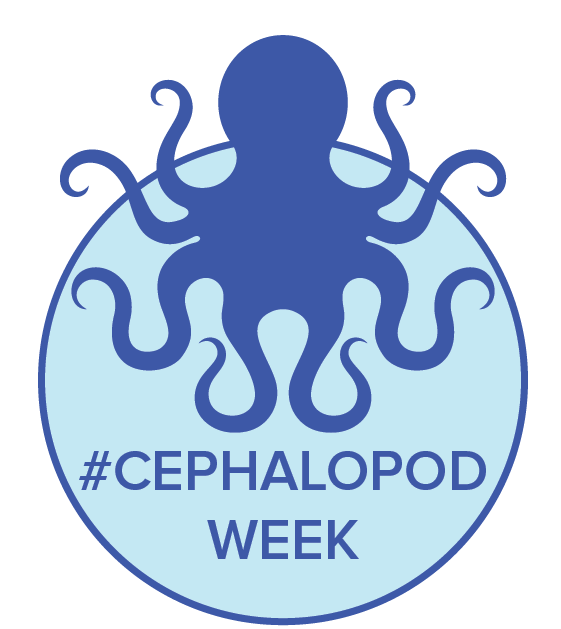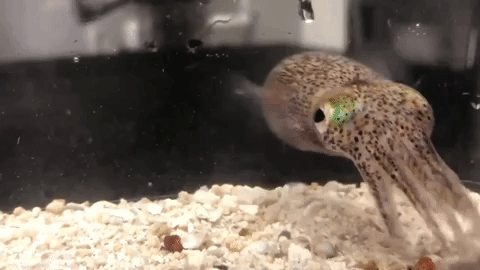
Life is hard for the mighty cephalopod. “If you’re a cephalopod, you’re super easy to eat,” says Sarah McAnulty, a squid biologist. “You’re basically a swimming protein bar.”
She studies a species of cephalopod called the Hawaiian bobtail squid. While most cephalopods have flashy adaptations to stay off predators’ dinner menus this particular squid relies on something that many other cephalopods don’t—its bacteria BFF.
Although some invading bacteria are destroyed by cells within the bobtail, their immune systems can learn to recognize “beneficial bacteria,” or bacteria that is ignored, and may even receive help from the immune system if it proves helpful to the livelihood of the animal. In the Hawaiian bobtail squid’s case, this bacteria is called vibrio fischeri—which is bioluminescent.

The Hawaiian bobtail squid is nocturnal. When it goes out to hunt at night, the lime-sized creature needs to stay invisible from predators beneath them. Instead of casting a shadow from the light of the moon, the bioluminescent bacteria in the squid’s belly faintly glows, making it look like a star or the moon (and harder to spot).
“These squid are giving us a really unique opportunity to understand how animals and bacteria relate,” says McAnulty. “How the colonization of bacteria affects your whole immune system, [how it] affects your whole genome, and what far-reaching parts of the body are affected by having beneficial bacteria live with you.”
In this video, Sarah explains how the special bacteria gets sorted in the squid’s body and how its immune system not only ignores it, but sacrifices its own immune cells to feed it.
Join Science Friday’s Sea Of Support
With every donation of $8 (for every day of Cephalopod Week), you can sponsor a different illustrated cephalopod. The cephalopod badge along with your first name and city will be a part of our Sea of Supporters!
Credits
Produced by Luke Groskin
Edited by Erika Sutter
Music by Audio Network
Additional Footage and Stills Provided by Sarah McAnulty, Nyholm Lab, Pond5
Sacrificial Hemocyte Research Conducted by the Ruby-McFall-Ngai Lab
Meet the Producers and Host
About Luke Groskin
@lgroskinLuke Groskin is Science Friday’s video producer. He’s on a mission to make you love spiders and other odd creatures.
About D. Peterschmidt
@dpeterschmidtD. Peterschmidt is a producer, host of the podcast Universe of Art, and composes music for Science Friday’s podcasts. Their D&D character is a clumsy bard named Chip Chap Chopman.